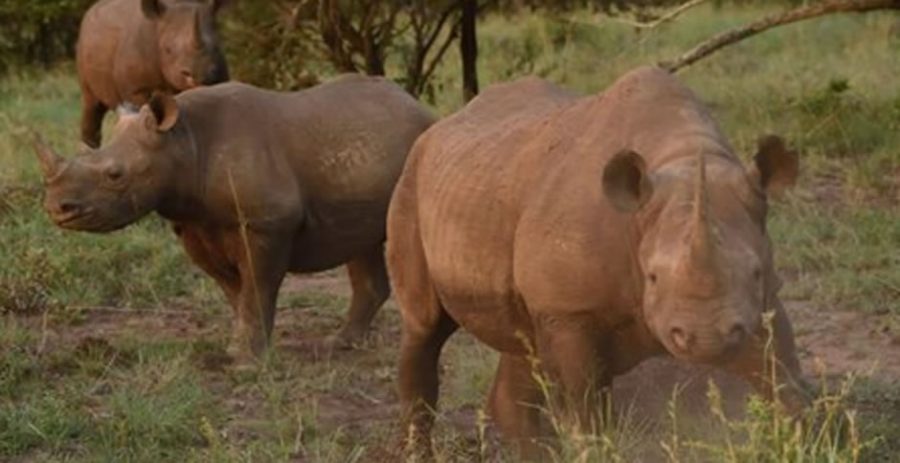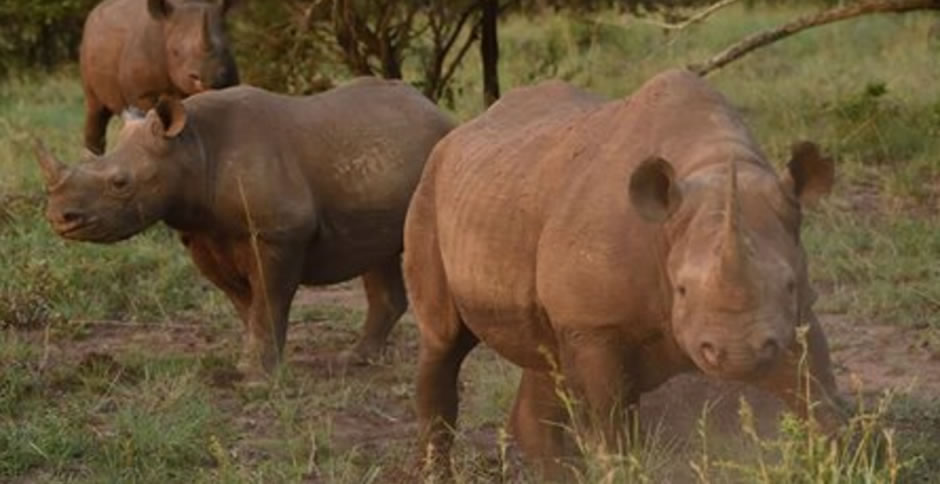
Latest Official South African Rhino Poaching Statistics
South African Environmental Minister Edna Molewa has (finally!) released the 2016 Rhino Poaching Statistics; and outlined the government’s progress in the war against poaching. She chose to release a statement rather than hold a media conference (the last one being in May 2016). The Minister said she was pleased to report that the multi-sector ‘Integrated Strategic […]

South African Environmental Minister Edna Molewa has (finally!) released the 2016 Rhino Poaching Statistics; and outlined the government’s progress in the war against poaching. She chose to release a statement rather than hold a media conference (the last one being in May 2016).
The Minister said she was pleased to report that the multi-sector ‘Integrated Strategic Management of Rhinoceros’ (ISMR) Approach is yielding the desired results, and that in 2016 South Africa registered a decline in the number of rhino poached, both for the country as a whole and for the hardest hit area, the Kruger National Park (KNP).
Rhino Poaching Statistics for South Africa, 2016
A total of 1 054 rhino were poached in 2016, compared to 1 175 in the same period for 2015, representing a decline of 10.3%.
Specifically for the KNP, a total of 662 rhino carcasses were found in 2016 compared to 826 in 2015. This represents a reduction of 19.85% in 2016. This is despite a continued increase in the number of illegal incursions into the Kruger National Park.
The Minister said for 2016 there were a staggering 2883 instances of unrelenting poaching-related activities (such as poaching camps, contacts, crossings, sightings, tracks and shots fired) in the Kruger National Park, compared to 2 466 recorded in the same period in 2015. This is an increase of 16.9%.
She said: “These criminal gangs are armed to the teeth, well-funded and part of transnational syndicates who will stop at nothing to get their hands on rhino horn.”
The Minister said the decrease in rhino being killed “can be attributed to the efforts of our men and women on the ground, especially our rangers.”
Rhino Poaching Arrests
During 2016, the SAPS reported that a total of 680 poachers and traffickers were arrested for rhino-related poaching offences nationally. This is a marked increase (over double) in arrests from 317 in 2015. Of this number, 417 were arrested both within and outside the Kruger National Park.
A total of 148 firearms were seized inside the Park in 2016, and 6 just outside the Park.
Rhino Poaching Increases in Other Provinces
While there has been a decrease in the number of rhino killed for their horns in the Kruger National Park and Mpumalanga, the number of rhino poached unfortunately increased in some other provinces.
“This indicates that syndicates are feeling the pressure from the interventions being employed in the KNP. We are therefore prioritising these pressure points through enforcement operations,” said the Minister.
Elephant Now Being Targeted by Poachers…
Tragically, South Africa’s elephants appear to have become the latest target of poachers. After a decade of only two elephant being poached (both in 2014), 19 were killed in the Kruger in 2015; and now – sadly – the Minister announced that 46 elephants were poached in the Kruger National Park in 2016.
“The interventions being implemented to counter rhino poaching are also used to respond to this emerging threat,” said the Minister.
“It is clear that more financial resources are required to address this challenge that we are experiencing in terms of both rhino and elephant poaching.”
Jamie Joseph’s Response to the Minister’s Statement:
Jamie Joseph, founder of Saving the Wild: “The report stands behind the smokescreen we are all used to by now; rhino poaching nationally is down slightly (although we’re still finding carcasses from 2016), and the Minister skims over the most critical issues we currently face. Lots of talk of arrests, but few convictions…
“Where is the plan Minister? Truth is, they have no plan, only budget cuts. And #elephant poaching is on the rise. It is up to every one of us to be a driving force for change. Support the people and organisations that have the courage and determination to take on an incompetent government. The fight continues… #corruption #poaching #justice”
Other important points in the Statement include:
- During 2016 eleven rhino were internally translocated away from boundaries in the KNP for security reasons, thereby complimenting the internal movements that started during 2014. (So far, evaluations on the translocations show that young cows and sub-adult males tend to integrate easily into existing rhino populations.)
- During 2016, a total of 106 rhino were translocated to private rhino strongholds, following suitability assessments conducted by SANParks late last year.Overall, our translocations have been successful and no trans-located rhino were poached.
- We are all aware of the damaging effect this drought continues to have on our country, and the KNP has not been immune. We have found that the deaths of rhino in the KNP, as a result of the drought of drought condition, has risen.
- During September 2016, a rhino survey using the scientifically accepted block count method recorded that a total of 6 649 – 7 830 white rhino lived in Kruger National Park. This is lower than the 8 365 – 9 337 that lived in the Kruger National Park during 2015. It must be noted that the natural deaths of white rhino increased due to the unprecedented drought conditions.
- A total of 349 – 465 black rhino lived in Kruger National Park in 2016 compared to 313 – 453 in 2015. The drought effect was not as noticeable on the black rhinos.
- There are 28 orphans under the care of Kruger National Park and partners, with 10 being cared for by Ezemvelo KZN Wildlife.
- Through the People and Parks Window of the Environment Programme, the government has created 1 585 408 job opportunities.
- Collaboration with the Government of Mozambique continues to improve and the partnership has been greatly successful in the past year. Over 30% of the families from eight villages have been relocated.
Minister Molewa highlights progress on Integrated Strategic Management of Rhinoceros. See » https://t.co/GfoCDdiXG9 pic.twitter.com/4KfDuIavYP
— Environmentza (@environmentza) February 27, 2017